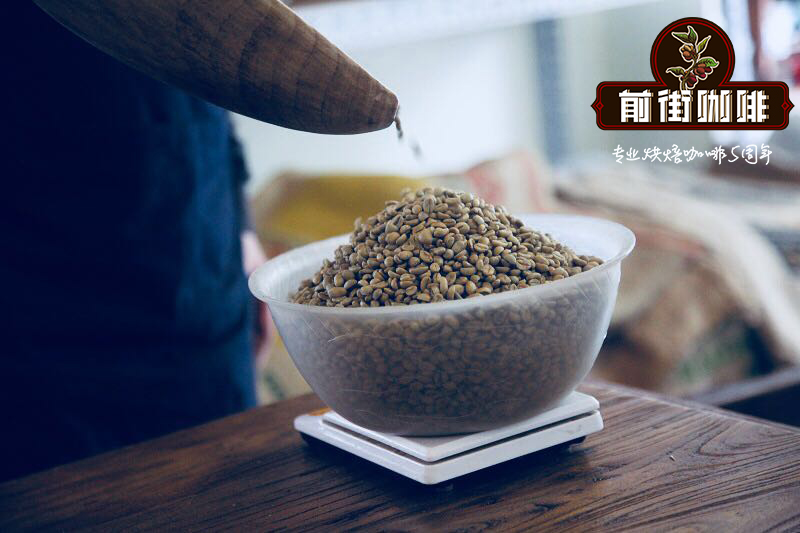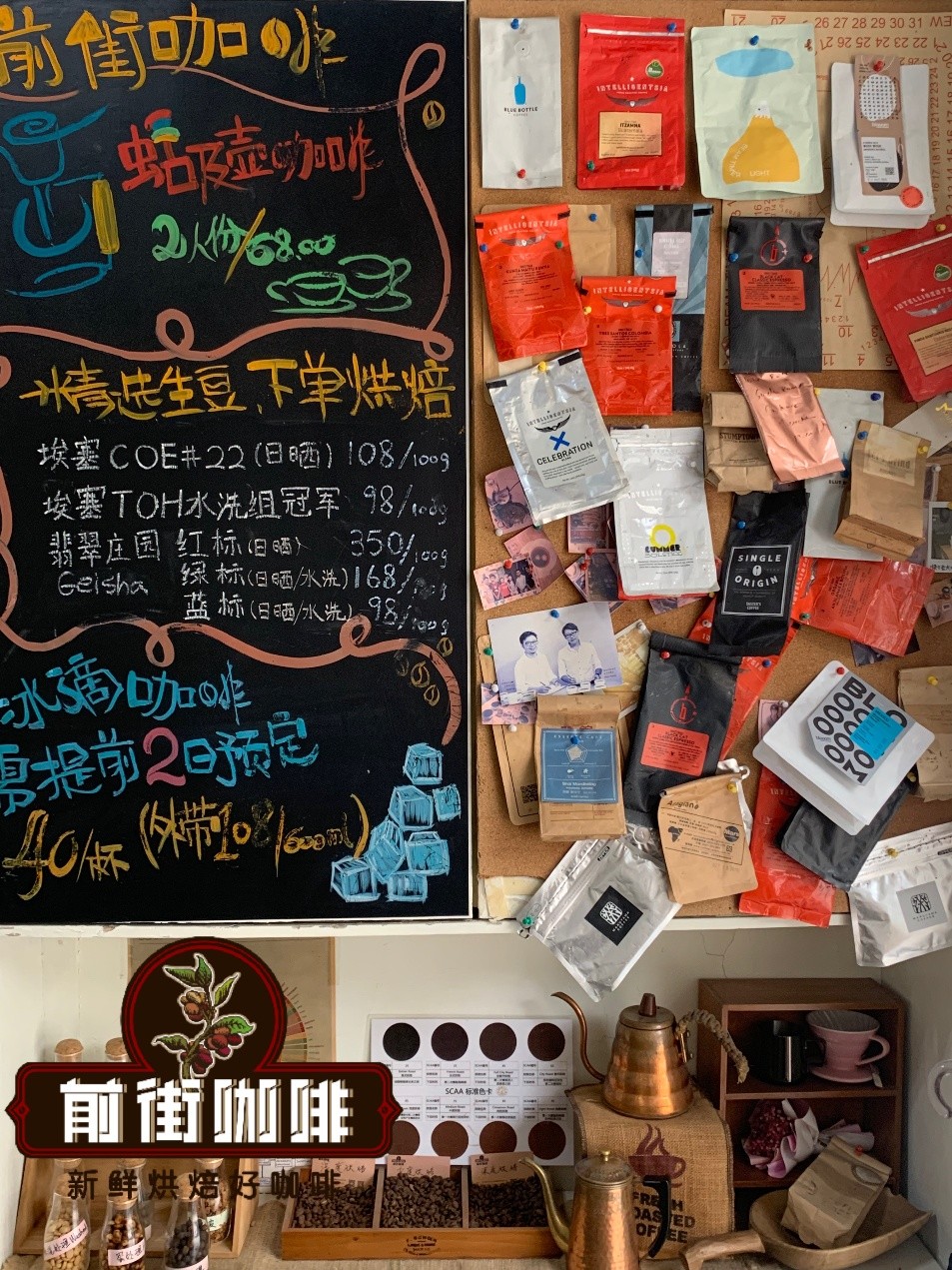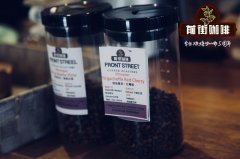How to make coffee in your own bakery? what coffee beans do you want to buy in an ordinary coffee shop?

Professional coffee knowledge exchange more coffee bean information please follow the coffee workshop (Wechat official account cafe_style)
Coffee bean wholesale supplier _ Chinese coffee bean latest price quotation where to buy _ coffee bean how much is a jin
Coffee supply chain
Have you ever thought about how you got the attractive coffee in your cup? A coffee fruit has to go through many hurdles before it can be smoothly transformed into hot coffee and delivered to you. First, cultivation, planting, harvest and fruit treatment at the producing end, followed by raw bean trading, baking and retail by middlemen, and finally grinding, brewing and cup making on the consumer side. After these procedures, the bright red coffee fruit turns into a cup of fragrant coffee and is delivered to you. And this series of complicated processes is the so-called "coffee supply chain".
Profit from baking
For the average consumer, "baking" is a term that seems to be near and far away. We all know that coffee beans need to be roasted, but we seldom come into contact with the baking industry. In fact, roasting is the highest gross profit margin of all processes in the entire coffee supply chain. According to a survey by the International Coffee Organization (ICO), the average gross profit margin of these bean roasters is as high as 51%. The annual output value of the global coffee roasting industry is as high as NT $750 billion.
And how high are the profits of the bakers? If we simplify the profits of the global coffee industry to 10 yuan, then growers will get 1 yuan, exporters will get 1 yuan, and retailers will get 3 yuan, while roasters can get 5 yuan alone, which is 50% of the profits of the global coffee industry.
Another feature of the baked bean industry is that the barriers to entry are extremely high. They must maintain a certain stock of raw and cooked beans, bear the loss of beans in the process of baking, and the flavor of cooked beans will change over time. This makes commodity distribution, logistics management is also a very important issue, if there is no considerable financial resources is very difficult.
And it usually takes six months for bakers to buy raw coffee beans to sell coffee-cooked beans or related products, so they need to have a lot of money to survive this long cash flow. In order to raise money, bakers have to borrow heavily, with an average financial leverage of two. In other words, 50% of their earnings before interest and tax are used to repay the interest on their debt.
Top ten baked beans merchants in the world
In spite of this, the bean baking industry is quite profitable, still creating many coffee giants. The top 10 bean bakers in the world provide 40% of the world's coffee beans, equivalent to 3.45 million tons of coffee beans. The top ten baked beans are listed below. The top three baked beans are all large food groups.
Coffee hegemony of bean roasters
In fact, many of the top 10 bakers, including Nestl é and UCC, run their own coffee brands, selling instant or canned coffee. Most of the common instant coffee on the market is also one of the products of the bean roaster group. Nestl é instant coffee, which is sold in more than 180 countries, accounts for 40% of the global market, with retail sales of more than NT $930 billion in 2015.
Do you wonder why the instant coffee market is still so profitable for those who love freshly brewed coffee? With the rise of the third wave of coffee, there has indeed been a significant change in consumers' preference for coffee, but the convenience of instant coffee is irreplaceable, coupled with the surge in demand for instant coffee in emerging coffee markets (for example, China and India). Supporting sales in the instant coffee market.
However, bean bakers are not satisfied with the status quo, they make different strategies to respond to the consumer preferences in the mature coffee market. Nestl é saw the personal coffee market and established NESPRESSO capsule coffee as early as 1986, targeting middle-class families, changing the image of cheap in the minds of consumers, emphasizing the high quality and fashion taste of NESPRESSO, and launching four kinds of capsule coffee flavors in the first year of its establishment.
Starbucks is also on the list of the top 10 baked beans, which may surprise many people. Starbucks is the giant of the global coffee retail industry and the largest coffee shop chain in the world, with more than 20000 stores worldwide. With such a large coffee access, Starbucks has greatly increased the amount of baked beans, which is also the business of Starbucks.
Generally speaking, these bean bakers have completed their own one-stop "coffee supply chain", from the origin, baking, processing to the final retail, all in their own hands, monopolizing almost all the profits. Some people have described these bean bakers as vampires, sucking up every dollar of the coffee industry.
Fairtrade coffee beans
It can be seen from the previous article that bean bakers make a lot of profits in the coffee supply chain and even start a retail business, but their upstream suppliers, who are already coffee farmers, do not get a better quality of life as a result. When the issue of fair trade is hot, bean bakers will be accused of exploiting farmers.
Moreover, climate change has reduced coffee production in recent years, and bean bakers need a large number of stable beans. In addition to promising to buy Fairtrade coffee beans, many companies have put forward sustainable plans to give back to farmers. For example, Nestl é creates shared value, including buying raw materials directly from farmers at guaranteed prices. Without middlemen, farmers can get higher profits and Nestl é can enjoy a fixed supply of raw materials. There are also technical assistance to farmers so that they can improve their efficiency and commodity quality. The above may only be in response to corporate social responsibility, but it also creates a win-win situation for farmers and bakers.
How much is the coffee bean per jin?
Important Notice :
前街咖啡 FrontStreet Coffee has moved to new addredd:
FrontStreet Coffee Address: 315,Donghua East Road,GuangZhou
Tel:020 38364473
- Prev

How to purchase Coffee beans in small Cafe how to choose a suitable supplier for domestic Coffee supply Company
Professional coffee knowledge exchange more coffee bean information please follow coffee workshop (Wechat official account cafe_style) coffee bean wholesale supplier _ where to buy coffee beans the latest price quotation _ how much coffee beans a jin of small cafes there are mainly 5 ways to buy coffee beans: 1. The earliest one is to choose local.
- Next

The latest price of coffee beans in China in 2022. Where can I buy coffee beans in a coffee shop? how much is a jin of coffee beans?
Professional coffee knowledge exchange more coffee bean information please follow coffee workshop (Wechat official account cafe_style) coffee bean wholesale supplier _ where to buy Chinese coffee beans latest price quotation _ how much coffee beans per jin Qianjie Cafe Tel: 020-38364473 website: www.ma
Related
- What documents do you need to go through to open a coffee shop? coffee shop coffee shop certificate processing process
- How to purchase Coffee beans in small Cafe how to choose a suitable supplier for domestic Coffee supply Company
- How to drink Starbucks Fragrance White Coffee? how to make Australian White Coffee? what Italian coffee beans are recommended?
- The Story of Flora Coffee: the name of Flora Coffee Bean and the implication of the Flowers on Florna Coffee
- How much does a cup of coffee cost? How much is the profit of a cup of coffee? What is the profit of the coffee shop in a year?
- Yunnan small Coffee, known as "fragrant Coffee", introduces the characteristics of Alpine Arabica Coffee producing areas in Yunnan, China
- 2023 latest Starbucks full menu price list how much is a cup of Starbucks coffee what is better to drink the most popular hot and cold drinks recommended
- Starbucks different kinds of Coffee Price list Starbucks menu 2023 Top Ten Best drinks in Starbucks
- Starbucks Spring praise Comprehensive matching Coffee Bean theme Story Packaging implication and taste description
- The cost of a cup of coffee latte American coffee cost price and selling price

